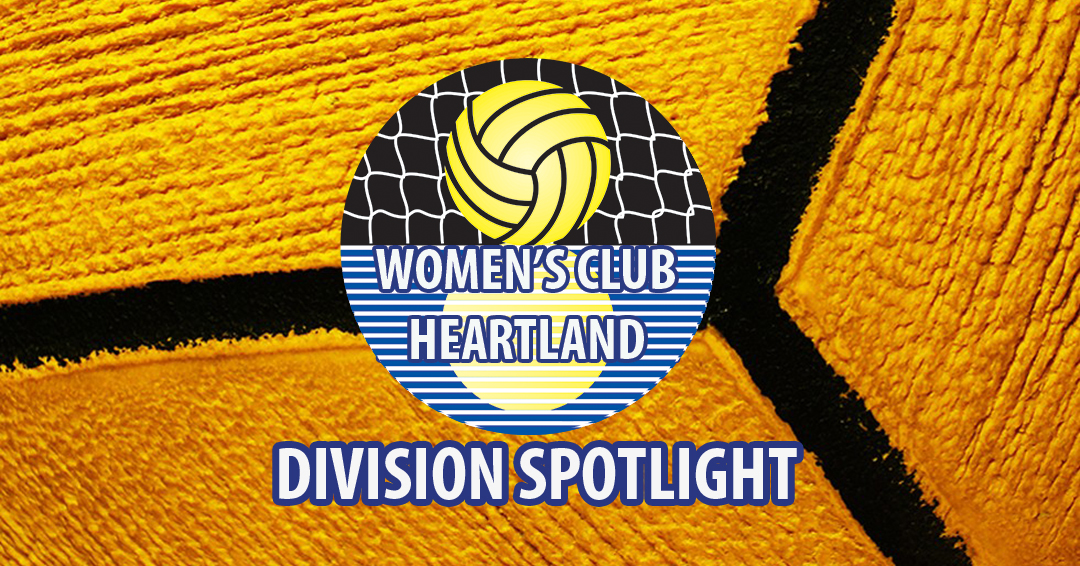BRIDGEPORT, Pa. — The Collegiate Water Polo Association (CWPA) Women’s Collegiate Club Spotlight Series heads to the middle of America to examine the private institutions of Augustana College, Carleton College, Grinnell College, Knox College, Saint Mary’s University of Minnesota and St. Olaf College that make-up the Heartland Division.
HISTORY: Founded in 1999 to rate in a tie with the Pacific Coast Division behind the Midwest (1996), Southwest (1997) and Northwest Division (1998) as the fourth oldest group in the Collegiate Water Polo Association (CWPA) women’s collegiate club ranks, the Heartland Division has seen seven teams win the division title. However, among the septet, only Carleton College (2002, 2006, 2009, 2019) and Grinnell (2018) remain in the division due to the creation of several varsity teams and the movement of some programs to other club divisions.
In the history of the division, Carleton has been the most consistent presence at the top of the standings as the team holds four titles (2002, 2006, 2009, 2019) with five runner-up marks (2001, 2003, 2008, 2011, 2018). However, the most successful team in terms of championship quantity is current Midwest Division member Lindenwood University as the Lions claimed five titles (2007, 2008, 2011, 2012, 2013) and also appeared in the 2009 title tilt.
Lindenwood’s fellow Midwest Division institution Washington University in St. Louis notched four consecutive Heartland crowns (2014, 2015, 2016, 2017), while Macalester College – which moved up to the varsity ranks – picked up four championships (1999, 2001, 2003, 2004) and a pair of runner-up placements (2002, 20015) before making the move to the CWPA’s varsity ranks.
Wheaton College won the 2005 title and placed second in 2004 before becoming varsity, while current Midwest Division member Illinois State University notched a win in the 2010 title game and tacked on a runner-up finish in 2013.
The remaining Heartland title belongs to Grinnell which took home the prize in 2018 following second place finishes in 2006 and 2014 prior to racking up another in 2019.
Among the active Heartland Division teams, three-time runner-up (2015, 2016, 2018) Knox joins Carleton and Grinnell as the only teams to make the division title game as the University of Minnesota (1999, 2012) and Iowa State University (2007, 2010) also played for the crown in the past 21 years.
Heartland Division Champion/Runner-Up
- 1999 – Macalester College / University of Minnesota
- 2000 – No competition
- 2001 – Macalester College / Carleton College
- 2002 – Carleton College / Macalester College
- 2003 – Macalester College / Carleton College
- 2004 – Macalester College / Wheaton College
- 2005 – Wheaton College / Macalester College
- 2006 – Carleton College / Grinnell College
- 2007 – Lindenwood University / Iowa State University
- 2008 – Lindenwood University / Carleton College
- 2009 – Carleton College / Lindenwood University
- 2010 – Illinois State University / Iowa State University
- 2011 – Lindenwood University / Carleton College
- 2012 – Lindenwood University / University of Minnesota
- 2013 – Lindenwood University / Illinois State University
- 2014 – Washington University (Mo.) / Grinnell College
- 2015 – Washington University (Mo.) / Knox College
- 2016 – Washington University (Mo.) / Knox College
- 2017 – Washington University (Mo.) / Knox College
- 2018 – Grinnell College / Carleton College
- 2019 – Carleton College / Grinnell College
THE TEAMS: Among the smallest of the women’s collegiate club divisions in terms of member institutions, the Heartland Division is comprised of schools with representation from Illinois (Augustana, Knox), Iowa (Grinnell) and Minnesota (Carleton, Saint Mary’s, St. Olaf).
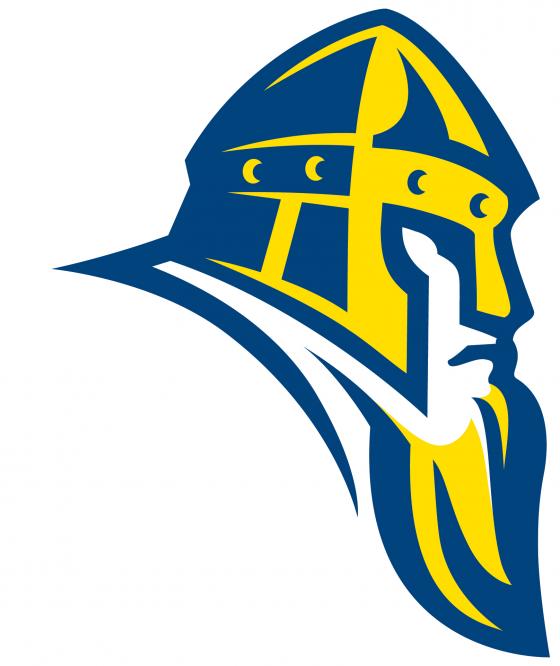 Augustana College
Augustana College
One of two schools located in Illinois competing in the women’s Heartland Division along with Knox College of Galesburg, Ill., the Vikings of Augustana College recently announced the school will begin varsity men’s and women’s water polo programs for the 2021-22 academic year.
Expected to continue competing in the Heartland Division through at least the 2020-21 academic year, the private Lutheran liberal arts college in Rock Island, Ill., currently enrolls approximately 2,500 students.
The school is currently building a new aquatics facility as the Austin E. Knowlton Center for Innovation in Health, Wellness and Human Performance will include a 25-yard pool.
Founded as Augustana College and Theological Seminary in 1860 by the Scandinavian Evangelical Lutheran Augustana Synod, Augustana ranks among the top 40 U.S. liberal arts colleges in the sciences, based on the number of graduates earning Ph.D.s. Students accepted to Augustana typically rank in the top 20% of their high school classes. 73% of Augustana students graduate in four years and 78% graduate in six years.
The services offered through CORE (Careers, Opportunities, Research and Exploration) afford students an advantage in graduate school placement and the job market. Three distinguishing opportunities are: Augie Choice which provides $2,000 to every student to support hands-on learning through research, an internship or international study; The Viking Scorecard which is a career and graduate school preparation guide; and a wide variety of faculty-led international programs ranging from two weeks to three months and covering all seven continents.
Augustana currently has nearly 90 academic programs and fields of study including nine pre-professional and eight interdisciplinary programs ranging from Accounting to World Literature.
The school is renowned for a unique item – dinosaurs. The Fryxell Geology Museum features a large collection of dinosaurs and fossils, rocks and mineral specimens. Displays include a complete skeleton of a Platecarpus “sea serpent”, skulls of Parasaurolophus, Ankylosaurus, Apatosaurus, Allosaurus and Tyrannosaurus rex and a two-billion-year-old fossil. There is also a complete 22-foot-long skeleton of Cryolophosaurus, a large, crested carnivorous dinosaur discovered in Antarctica in 1991 by Augustana paleontologist William Hammer.
For more information on the Augustana women’s collegiate club team, contact Rachel Finnerty (rachelfinerty16@augustana.edu).
- Facebook (@Augiewaterpolo)
Carleton College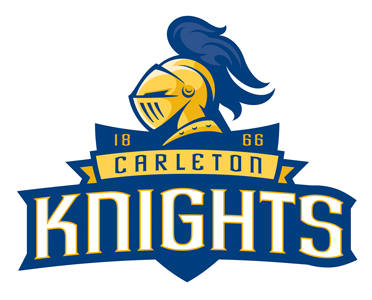
One of two Heartland Division teams located in Northfield, Minn., along with St. Olaf College, Carleton College is the active leader among the group’s membership in both titles (four) and championship game appearances (nine).
The 2002, 2006, 2009 and 2019 Heartland Division Champion, the Knights/Righteous Babes placed second in 2001, 2003, 2008, 2011 and 2018 to far outdistance their closest competitors of Grinnell College (four) and Knox College (three) in title game berths.
Founded in 1866 and currently enrolling 2,105 undergraduate students, Carleton is consistently ranked among the best national liberal arts colleges. Rated fifth-best overall and first for undergraduate teaching by U.S. News & World Report in 2019, the institution has produced 122 National Science Foundation Graduate Fellows, 112 Fulbright Scholars, 22 Watson Fellows, 13 Goldwater Scholars and two Rhodes Scholars. Further, Carleton is also one of the largest sources of undergraduate students pursuing doctorates per one hundred students for bachelors institutions.
The school offers 33 different majors and 31 minors. Students also have the option to design their own major. There are ten languages offered: Spanish, French, German, Chinese, Japanese, Russian, Arabic, Latin, Greek, and Hebrew. The academic calendar follows a trimester system where students usually take three classes per 10-week term.
Degree students are required to take an Argument & Inquiry Seminar in their first year, a writing-rich course, three quantitative reasoning encounters (courses in which students work with quantitative data and arguments), language, international studies, intercultural domestic studies, humanistic inquiry, literary/artistic analysis, arts practice, science, formal or statistical reasoning, social inquiry, and physical education.
For the incoming class of 2023, the admittance rate was 19.2% of all applicants, making Carleton the most selective college in Minnesota. Further, the school has a strong history of enrolling students who are in the National Merit Scholarship Program, often enrolling more than any other liberal arts college in the nation. Usually around 16% of the incoming class, the Class of 2021 included 51 National Merit Scholars.
For more information on the Carleton women’s collegiate club team, contact either Rebekah Kissel (kisselr@carleton.edu) or Jez Meza-Bigornia (bigorniaj@carleton.edu).
- Website (https://www.carleton.edu/sport-clubs/team-pages/water-polo/)
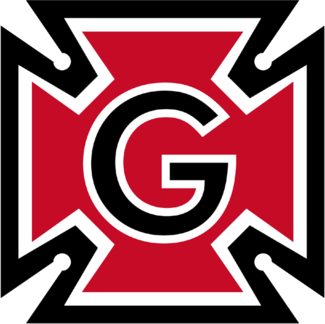 Grinnell College
Grinnell College
The 2018 Heartland Division champion and a three-time runner-up (2006, 2014, 2019), the Pioneers of Grinnell College are the only division school located in Iowa.
The Grinnell, Iowa, institution was founded in 1846 and has the sixth highest endowment-to-student ratio of liberal arts colleges, enabling need-blind admissions and substantial academic merit scholarships to boost socioeconomic diversity. Students receive funding for unpaid or underpaid summer internships and professional development (including international conferences and professional attire). Grinnell participates in a 3–2 engineering dual degree program with Columbia University, Washington University in St. Louis and the California Institute of Technology, a 2–1–1–1 engineering program with Dartmouth College and a Master of Public Health cooperative degree program with the University of Iowa.
Grinnell’s open curriculum encourages students to take initiative and to assume responsibility for their own courses of study. The sole core, or general education, requirement is the completion of the First-Year Tutorial, a one-semester, four-credit special topics seminar that stresses methods of inquiry, critical analysis, and writing skills. All other classes are chosen, with the direct guidance of a faculty member in the student’s major department, by the student.
In sharp contrast to all public universities and many private universities in the United States, no classes, labs or other courses are taught by graduate students.
Grinnell has twenty-six major departments and ten interdisciplinary concentrations. Popular majors include Psychology, Economics, Biology, History, English, and political science. The minimum requirements in a major area of study are typically limited to 32 credits in a single department, with some departments additionally requiring a small number of classes in related fields that are deemed critical for all students in that field. For example, the biology program requires 32 credits in the biology department plus two classes in chemistry and one in math.
To graduate, students are normally expected to complete at least 32 credits in a major field and a total of 124 credits of academic work. To encourage students to explore courses outside of their primary interest area, no more than 48 credits in one department and no more than 92 credits in one division are counted towards this requirement.
Grinnell’s commitment to the importance of off-campus study reflects the school’s emphasis on social and political awareness and the international nature of its campus. Approximately 60 percent of all Grinnell students participate in at least one of more than seventy off-campus programs, including the Grinnell-in-London program and study tours of China, France, Greece, and Russia. These study programs in Europe (including Russia), Africa, the Near East, and Asia, as well as nine programs in Central and South America, provide the opportunity for research in many disciplines, from archaeology to education to mathematics. In addition to off-campus programs, Grinnell offers internship programs in such areas as urban studies, art, and marine biology for students interested in field-based learning and experience in professional settings. Second- and third-year students may apply for summer internship grants and receive credit for the experience.
For more information on the Grinnell women’s collegiate club team, contact either Olivia Konieczny (konieczn@grinnell.edu) or Gretchen Schreiner (schreine@grinnell.edu).
- Facebook (@gcfireballz)
- Twitter (@GrinnellPolo)
Knox College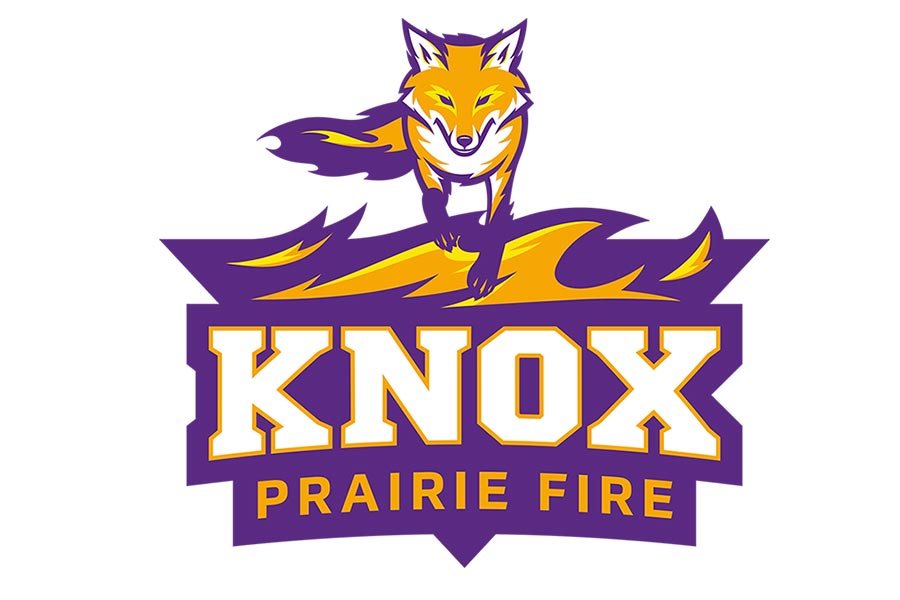
A three-time Heartland Division runner-up (2015, 2016, 2017), Knox College was founded in 1837 in Galesburg, Ill., and offers more than 60 fields of study.
Knox employs a 3–3 academic calendar rather than a traditional semester-based approach. In each of the three 10-week terms, students take three courses. Faculty members teach two courses each term, giving them more time for one-on-one mentoring.
The college has an agreement The George Washington University for an early admission program into the university’s medical school, and a deal with the University of Rochester to create a direct admissions program into the university’s Simon School of Business’s MBA program; in 2007 the Peace Corps launched a new program at Knox, establishing the Peace Corps Preparatory Program, the first of its kind in the country; Chinese language instruction, Asian Studies, Environmental Studies, and Film Studies were all added; and new abroad studies programs have been created.
Knox is also known for its Green Oaks term, an interdisciplinary program at the 700-acre Green Oaks Biological Field Station, during which students and faculty spend an entire term conducting research and creative projects and participating in courses in biology, anthropology-sociology, and English, as well as workshops in outdoor skills, first aid, and photography.
Knox also promotes undergraduate research, annually awarding students more than $250,000 in grants to support research and creative projects. More than 10 percent of Knox students receive support for independent research and study from the Richter Memorial Foundation Program and the Pew Research Fellowships, which offers Knox students support for off-campus research in science and mathematics. In addition, the Rockefeller Brothers Fund supports student research in ecology and environmental studies and the AAAS/Merck Grant funds interdisciplinary scientific research.
Knox provides a number of combined programs (3 years at Knox, 2–3 years at partnering institutions) to offer a few specialized degrees outside of the core liberal arts disciplines. These include engineering (Columbia University, Rensselaer Polytechnic Institute, University of Illinois at Urbana Champaign, Washington University in St. Louis), environmental management (Duke University), forestry (Duke University), occupational therapy (Washington University in St. Louis) and law (University of Chicago, Columbia University).
Almost half of Knox students take advantage of the opportunities for off-campus learning, studying theatre in London, history in Barcelona, French immersion in Besançon, mathematics in Hungary, social development in Tanzania, language and culture in Japan, political science in Washington, D.C., and a host of other subjects in Africa, Asia, Europe, Latin America and the United States.
For more information on the Knox women’s collegiate club team, contact either Fred Lehman (knoxcollegewaterpolo@gmail.com) or head coach Jonathan Powers (jpowers@knox.edu).
- Facebook (@kcwaterpolo)
- Instagram (@knoxcollegewaterpolo)
- Website (https://www.knox.edu/campus-life/student-organizations/co-ed-and-womens-water-polo)
 Saint Mary’s University of Minnesota
Saint Mary’s University of Minnesota
Located in Winona, Minn., Saint Mary’s University of Minnesota is a private Catholic university providing graduate and professional programs at facilities in Winona, the Minnesota/St. Paul, Rochester, Apple Valley, Minnetonka, and Oakdale, Minnesota; and various course delivery sites around Minnesota and Wisconsin; Jamaica, and Nairobi, Kenya. The institution was founded in 1912 and is associated with the Institute of the Brothers of the Christian Schools (Christian Brothers).
The school has an enrollment of 5,900 students, including 1,171 traditional undergraduates on campus and approximately 4,729 graduate students taking classes either online or via satellite locations.
Saint Mary’s has a wide variety of degrees offered as the institution offers bachelor’s, master’s and doctorate degrees for both traditional and non-traditional students. In addition to the degrees, Saint Mary’s also offers teaching certifications and pre-professional programs.
For more information on the Saint Mary’s women’s collegiate club team, contact Colby Peterson (cfpete16@smumn.edu).
- Website (https://saintmaryssports.com/sports/2018/7/18/saint-marys-club-sports.aspx)
St. Olaf College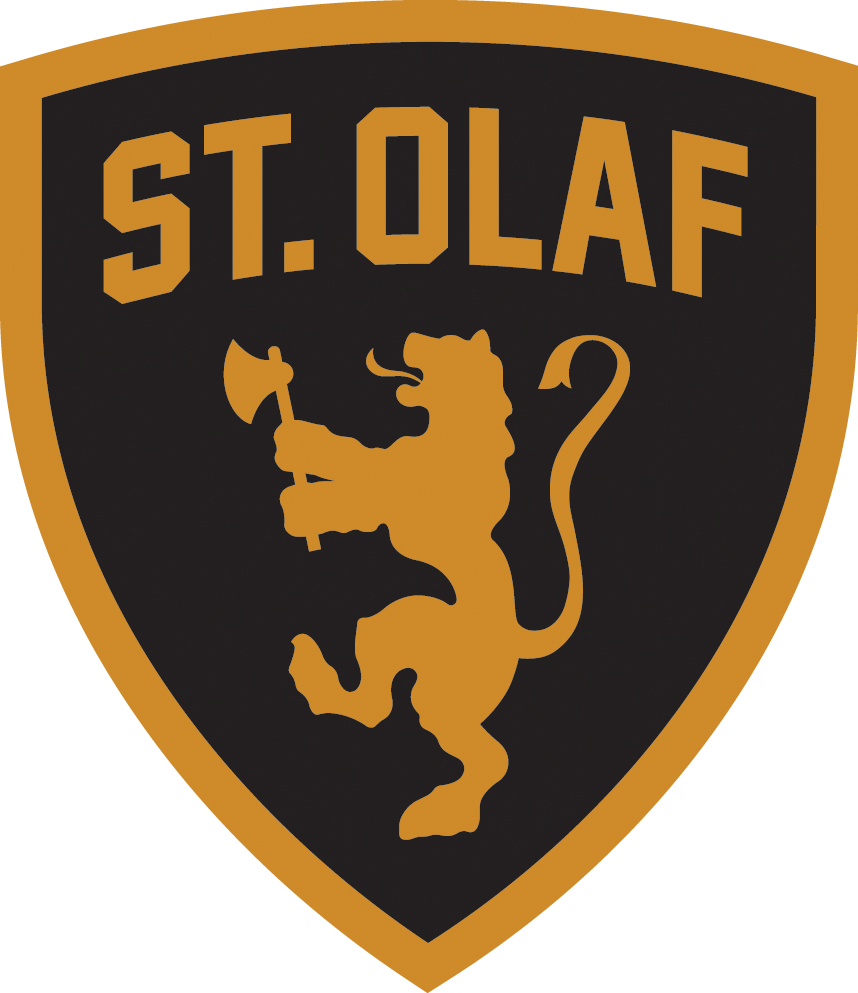
The Rogue Waves of St. Olaf College returned to the collegiate club ranks this year following a 20-year absence from the sport.
“Rogue waves are unusually large, unexpected and suddenly appearing surface waves that can be extremely dangerous, even to large ships such as ocean liners,” notes club founder YiWynn Chan. “That is where our team name came from – that we are a new and unpredictable force, with strong water polo ambitions.”
Comprised of five nationalities with a roster of over 20 athletes, the St. Olaf women pulled double-duty during the year as they comprised 80% of the men’s club roster during the Fall of 2019. At the men’s Heartland Division Championship weekend, the team fielded a roster of all women except the goalie. Further, the squad competed during much of the men’s season with an entirely female line-up on multiple occasions.
An entirely student-run organization spanning coaching, finances, logistics, etc., the team offers a variety of ways for newcomers to immerse themselves in water polo.
“We laugh a lot during practices, all while encouraging each other to push ourselves harder,” notes Chan.
“Apart from teaching the basics of water polo, we also have swim classes to help those less confident in the pool to boost their swim skills and run stroke corrections as well.”
Located in Northfield, Min., St. Olaf has a natural rivalry with crosstown friend/foe the Righteous Babes of Carleton College.
“We have a love hate relationship with them,” adds Chan. “Being the other school in town, our two colleges are supposed to be sworn enemies. Believe it or not, the Righteous Babes are the reason the Waves exist today. They lent us a lot of equipment in the beginning before we were active enough for the college to fund us – so we are forever in debt to them for making water polo possible at St. Olaf.”
Due to their close proximity, the two programs compete in friendlies and hold dinners/socials together.
“We always start off each match with a “Babes” vs “Waves” chant and have fun jokes and teases going around the pool during the game, all while playing a serious, well-fought match,” per Chan.
Still in the early stages of their club’s development, the Rogue Waves foresee bigger achievements on the horizon.
“As our club started with the Class of 2022, our aim is to qualify for nationals in our senior year for the men in Fall 2021 and the women in Spring 2022. Thanks to our current team lineup and drive, we think it is very possible to achieve the goal of training up a team fit to win the Heartland Division in our next few years at Olaf.”
Led by head coach Danny Barry, St. Olaf relied on the trio of Toni Zheleva, Chan and Leslie Garfias during the COVID-19 abbreviated women’s season to lay the groundwork upon which the program’s future success will be built.
Founded in 1874 by a group of Norwegian-American immigrant pastors and farmers, the college is named after the King and the Patron Saint Olaf II of Norway and is affiliated with the Evangelical Lutheran Church in America. The college enrolls 3,035 undergraduate students and has 256 faculty. Overall, St. Olaf ranks 12th in the number of graduates who have gone on to earn doctorate degrees from among the nation’s 267 baccalaureate colleges.
St. Olaf students complete nearly 20 required courses in foundation studies (writing, a second language, oral communication, mathematical reasoning, physical well-being, as well as other courses) and core studies that include studies in Western culture, human behavior and society, biblical and theological studies, artistic and literary studies, and studies in natural science. Many of the courses are interdisciplinary. St. Olaf offers 39 major areas of study for the bachelor of arts degree, four for the bachelor of music degree and 19 areas of concentration.
The school holds a place in literary and television history thanks to being mentioned in the works of Minnesota author F. Scott Fitzgerald, whose character Jay Gatsby of The Great Gatsby attended the college briefly and worked as a janitor. Further, the school earned a nod on the show, The Golden Girls, as the fictional hometown of Betty White’s character is St. Olaf, Minn.
For more information on the St. Olaf women’s collegiate club team, contact either Danny Barry (barry@@stolaf.edu) or YiWynn Chen (chan4@stolaf.edu).
- Instagram (@st.olaf_waterpolo_club)

